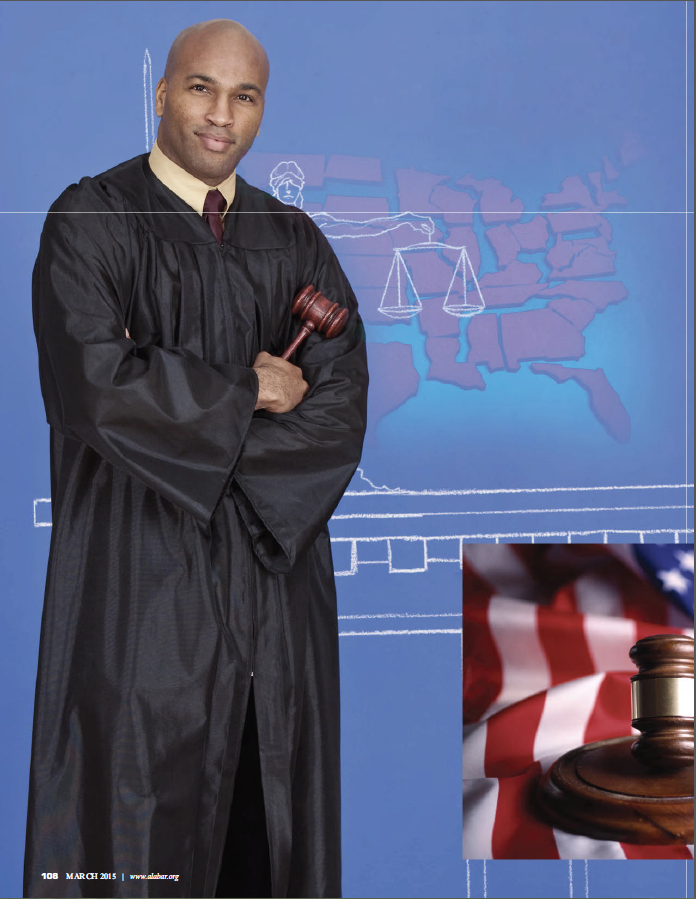Exclusive Legislation Does Not Mean Exclusive Jurisdiction-state-court Jurisdiction Over Civil Actions Arising Upon Federal Enclaves
| Publication year | 2015 |
| Pages | 0109 |
| Citation | Vol. 76 No. 2 Pg. 0109 |


Enclave Clause
Article I, Section 8, clause 17, of the Constitution of the United States (the "Enclave Clause") provides:
The Congress shall have Power ... To exercise exclusive Legislation in all Cases whatsoever over [the District of Columbia], and to exercise like Authority over all Places purchased by the Consent of the Legislature of the State in which the Same shall be, for the Erection of Forts, Magazines, Arsenals, dock-Yards, and other needful Buildings.
Clause 17 does not of its own force make a federal court the exclusive forum for resolving civil disputes arising upon federal enclaves. On the contrary, state courts and federal courts have concurrent jurisdiction over transitory actions arising upon federal enclaves. A recent decision from the Supreme Court of Alabama, Ex parte U.S. Innovations Group, Inc., 141 So.3d 459 (Ala. 2013) ("Ex parte USIG"), conclusively establishes this point of law.
Authorities Establishing Concurrent State And Federal Jurisdiction
Prior to Ex parte USIG, the Enclave Clause had been construed by the United States Supreme Court1 and only a few federal courts of appeal,2 district courts3 and state appellate courts4 to confer concurrent state and federal jurisdiction to adjudicate civil actions arising upon federal enclaves. Secondary authorities concerning enclave jurisdiction were likewise sparse. The author of a 2011 "Practitioners' Notes" article asserted: "Research reveals no published law review articles examining the doctrine." Emily S. Miller, "The Strongest Defense You've Never Heard Of: The Constitution's Federal Enclave Doctrine and Its Effect On Litigants, States, and Congress," 29 Hofstra Lab. & Emp. L. J. 73, 74 n. 11 (2011). Miller overlooked two articles in the Military Law Review: Maj. Stephen E. Castlen and Lt. Col. Gregory O. Block, "Exclusive Federal Legislative Jurisdiction: Get Rid Of It!," 154 Mil. L. Rev. 113 (1997); and Capt. Richard T. Altieri, "Federal Enclaves: The Impact of Exclusive Legislative Jurisdiction Upon Civil Litigation," 72 Mil. L. Rev. 55 (1976). The latter article, in 1976, noted that "the emerging trend, which reinterprets the nature of legislative jurisdiction, offers a cure for the existing confusion in the areas of service of process and subject matter jurisdiction." 72 Mil. L. Rev. at 85.
Ex parte USIG Properly Rejected Exclusive Federal-Court Jurisdiction
In the case recently decided by the Supreme Court of Alabama, defendants argued that the enclave clause, of its own force, makes federal courts the exclusive forum for civil actions arising on federal enclaves. The Supreme Court of Alabama disagreed: "a grant of 'exclusive federal jurisdiction' over land does not, by itself, indicate an intention to create exclusive federal-court jurisdiction of claims arising on that land."5
Ex parte USIG joins the short list of decisions specifically and squarely holding that a state court has jurisdiction over a civil action arising on a federal enclave. The question was previously so unclear that the defendants in Ex parte USIG were emboldened to petition the Supreme Court of Alabama for mandamus on the point despite rulings against them by a United States Magistrate Judge,6 two United States District Judges7 and the Circuit Court of Madison County, Alabama8 -and then to apply for rehearing after the Supreme Court of Alabama initially denied the petition without issuing an opinion, and again after it issued its June 28, 2013 opinion on the first rehearing. The Supreme Court of Alabama's ultimate opinion, issued June 28, 2013, succinctly analyzes the authorities on the subject and demonstrates conclusively the correctness of the holding. This article sets forth and builds upon that analysis in hopes of forestalling similar arguments that the "exclusive Legislation" provision or the "like Authority" provision of the Enclave Clause precludes state-court jurisdiction over transitory actions arising upon federal enclaves.
Ex parte USIG-Removed, Remanded and State-Court Jurisdiction Affirmed
On May 5, 2010, Jerry A. Grimes and James R. Hawke, Jr. were employed by Amtec Corporation and working pursuant to a government contract at Redstone Arsenal, a federal enclave located in Madison County, Alabama. Amtec was using a decanter centrifuge to process and reclaim highly explosive ammonium perchlorate from outdated U.S. Army rocket motors. The centrifuge exploded with Grimes and Hawke working only a few feet away. They both suffered unsurvivable third-degree burns and explosion injuries and died.
Carolyn Grimes, individually and as administratrix and personal representative of Mr. Grimes, brought a wrongful-death action in the Circuit Court of Madison County against co-employees of his and the entities and individuals who configured and sold the centrifuge to Amtec.9 Judy A. Hawke brought a similar action as the administratrix and personal representative of the estate of her deceased husband, Mr. Hawke.10
Three defendants ("the Ashbrook Simon-Hartley Defendants") removed the case to federal court.11 They asserted: "The U.S. District Court has original jurisdiction according to 'federal enclave' jurisdiction, which is a specific type of federal question jurisdiction 'arising under' 28 U.S.C. § 1331."12 However, the removal did not have the consent of all defendants, and some expressly objected, as Mrs. Grimes stated in her motion to remand.13 In Hawke, defendant Jack Dombroski, an employee of U.S. Centrifuge, filed a notice of removal, but it was untimely so Mrs. Hawke also moved to remand.14
In opposition to the motions to remand, the remaining defendants argued that the enclave clause gives federal courts exclusive jurisdiction over actions arising on federal enclaves and thus obviates the need to comply with the unanimity and timeliness requirements of the removal statute.15 The federal district courts disagreed and granted the motions to remand.16
Upon remand to the Circuit Court of Madison County, those defendants renewed their arguments for exclusive federal-court jurisdiction over actions arising on federal enclaves, moving to dismiss the state court actions for want of subject-matter jurisdiction. The Madison County Circuit Court denied the motions to dismiss.17 Defendants then petitioned for a writ of mandamus, arguing that the denials of these motions to dismiss were erroneous. The Supreme Court of Alabama initially denied the petitions without opinions, but after consideration of the defendants' applications for rehearing, denied the petitions with a scholarly dispositive opinion.18
Source of Confusion: Two Meanings of "Jurisdiction"
Although the Enclave Clause does not use the word "jurisdiction," courts have used this word to refer to the clause's grant to Congress of political authority over the District of Columbia and other lands (such as forts and arsenals) acquired pursuant to the clause by the United States.19 "It long has been settled that, where lands for such a purpose are purchased by the United States with the consent of the state legislature, the jurisdiction theretofore residing in the state passes, in virtue of the constitutional provision, to the United States, thereby making the jurisdiction of the latter the sole jurisdiction."20
USIG's argument depended upon a failure to correctly observe the difference between two distinct meanings of the word "jurisdiction." Black's Law Dictionary gives both definitions:
jurisdiction, n. (14c) 1. A government's general power to...
To continue reading
Request your trial
